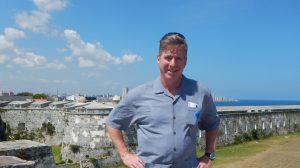Gaborone International Police Academy


The International Law Enforcement Academy (ILEA) Gaborone was founded to teach African law enforcement agencies. The Academy strengthens international cooperation and law enforcement to combat transnational organized crime. A managing director runs the police academy, which Botswana founded in 2000. Gaborone’s ILEA can be accessed by several methods.
ILEA-South
The International Law Enforcement Academy-South trains African law enforcement officers (ILEA-South). The Academy promotes democracy and the rule of law to improve US-African law enforcement collaboration. It fosters international cooperation against transnational organized crime. The Botswana government funds ILEA-South, which has a Managing Director.
The US Department of State acknowledges graduates as mid-level Latin American officials and managers. These trainees will become cops, prosecutors, and judges. ILEA-South does not violate the Leahy Act, which bars federal funding for the armed forces and other human rights violators, because students are not screened. Many graduates return home.
ILEA-Gaborone
Gaborone’s International Law Enforcement Academy trains police in developing African countries to enhance their criminal justice systems. The college prioritizes democratic rule, police reform, and regional agency cooperation. The effort strengthens law enforcement relationships between the US and Africa and other nations. ILEA Gaborone also seeks international organized crime cooperation.
ILEAM-Gaborone follows other ILEA curricula. Case management, forensics, and counterterrorism are taught. They also study customs interdiction and policing. They receive classroom and hands-on training to become police supervisors. Law enforcement training is hands-on.
ILEA-Roswell
The International Law Enforcement Academy (ILEA) trains foreign police personnel for the US Department of State. The US created an International Law Enforcement Alliance to keep transnational criminals out (ILEA). By educating its international students well, the ILEA hopes to achieve both goals.
The US created four regional ILEAs in Africa, Asia, Europe, and Latin America with other nations to broaden its reach. The International Law Enforcement Academy-Roswell emphasizes criminal justice. It conveys State Department foreign policy goals. The Academy provides unprecedented worldwide cooperation and collegiality in fighting transnational crime.
International Legal English Association-South
The International Law Enforcement Academy trains police officers worldwide (ILEA). This effort strengthens democracy and police forces in Africa by educating police officers. The ILEA initiative encourages transnational organized crime cooperation between the US and African law enforcement organizations. The U.S. Embassy in the host country and a Joint Oversight Committee of both governments administer the ILEA-South. The US Embassy and the host country’s government agree to meet twice a year to discuss shared interests.
The US State Department honours Latin American political and corporate leaders from ILEA South. These people will be judges and prosecutors. The ILEA-South pact doesn’t address student screening, but the US supports Costa Rica’s democracy. US embassies must check trainees’ human rights records. ILEA-South is a good start, but US anti-drug strategy in Latin America must be considered.
ILEA-South assignments
The US Department of State says ILEA-South will attract middle-level administrators, judges, and district attorneys. The group will meet twice a year and make judgments after agreeing, but student screening has not been disclosed. The academy may report to Congress. Agency and group roles are unknown. ILEA-South will train Latin American police officers, despite reservations.
The curriculum teaches transferable skills for many fields. Coursework covers educational goals and methods. This course will teach you how to prepare lessons, use digital teaching tactics, and evaluate student progress. They’ll also practice handling challenging students. Many useful tasks are offered. Our professors all have strong academic qualifications and law enforcement backgrounds. This helps students understand ILEA-diverse South’s curriculum.
The Committee Inspects ILEA-South
The U.S. Department of State’s International Law Enforcement Academy-South Advisory Committee will monitor curriculum implementation. A local American Joint Oversight Committee runs the Academy. This committee decides by consensus twice a year. Both Americans and Costa Ricans are needed. The curriculum should include global and intergovernmental viewpoints.
The US Department of State is seeking a Latin American nation to host ILEA-South. Despite Costa Rica’s interest, the assembly hasn’t accepted the treaty. The academy’s curriculum aims to improve police efficiency and cooperation with US agencies, although human rights abusers may be trained. Human rights groups applaud the academy, but they worry that dishonest police officers may return home.





